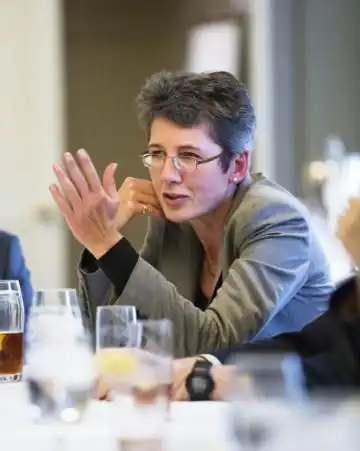Accueil>European Welfare States during and after the COVID crisis
05.05.2020
European Welfare States during and after the COVID crisis
À propos de cet événement
Le 05 mai 2020 de 16:00 à 18:00
LIEPP is glad to invite you to attend the webinar :
The European Welfare States during and after the COVID crisis
13th of May 2020
17h00 - 18h30
Presentation
The measures taken during the crisis reveals (to those who would have forgotten at least) how important it is to have a sound health care system, functioning unemployment insurance and social solidarity more generally. It also reveals the weaknesses of some of our welfare systems, and the necessity to fix them. Moreover, the crisis is deepening social inequalities and damages, hence requiring even more social intervention. However, the sudden economic recession and the immense debt that is currently accumulating might announce a bleak future for social expenditure. What could be the prospect for an exit of the crisis that would not reiterate the post 2008 crisis? What kind of social policies would be required? Based on which social contract and political coalition?
During this webinar, Waltraud Schelkle will analyse the macro-stabilisation role of the welfare state that the management of the Corona pandemic has brought home. One of the (bitter) ironies of the Corona crisis management is that even the financial industry and central banks have come under pressure to help, both to scale up the welfare state to the macro level (with mixed results so far) and to reach the self-employed who are not well-served by most welfare states.
Anke Hassel will then remind us that he lockdown is likely to reinforce existing trends of polarization of European labour markets. Vulnerable groups such as the young and women in the service economy are hit hardest, while older and male workers in core industries are well protected. More than before European welfare states face the challenge to overcome dualist tendencies and to provide universal protection and social investment.
Anton Hemerijck will then recall that countries with inclusive ‘buffers’, gender-balance human capital ‘flows’, and lifelong human capital ‘stock’ commitments, including health care, seemingly rebound earlier, that welfare state that have had pursue austerity and internal devaluation. As the Covid-19 pandemic is a crisis of existential human fragility and interdependence, citizens expect their politician to portray and enact politics of the long-term in managing interdependence in civilized fashion with an inter-temporal perspective.
Bruno Palier will then come back on the tensions already visible at the EU level between North and Southern countries, both marked by different growth strategies and associated welfare state trajectories. By focusing on the common challenges that all European countries have to face together, he will underline under which conditions the rising gap between North and Southern Europe will not lead to a rupture.
Speakers
Professor of Political Economy
European Institute and LSE
Professor of Public Policies
Hertie School of Governance
Professor of Political Science and Sociology
European University Institute
Sciences Po, CEE
Director of LIEPP




